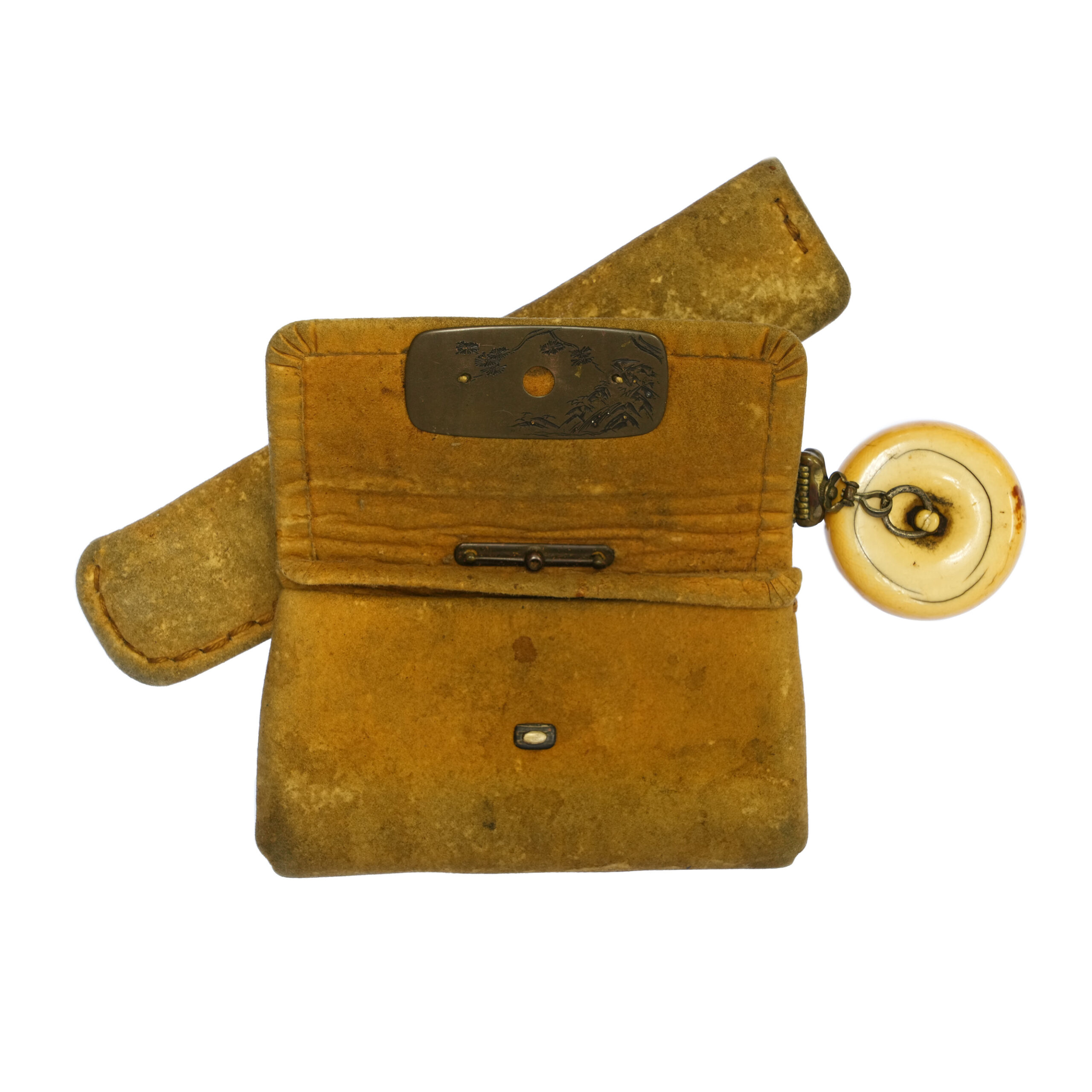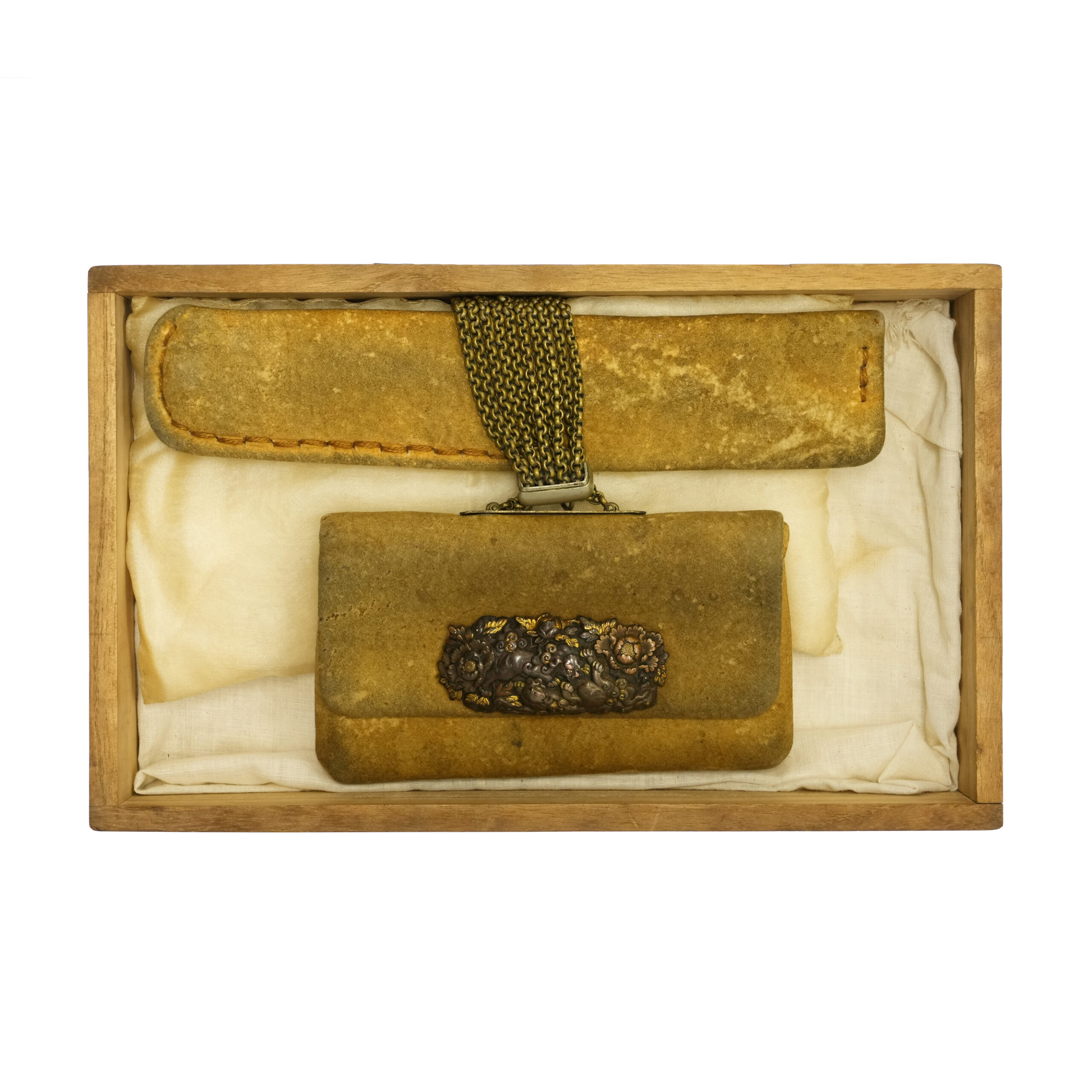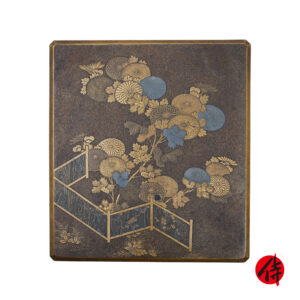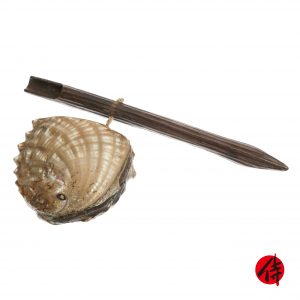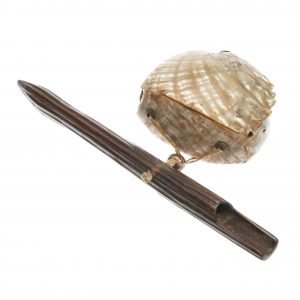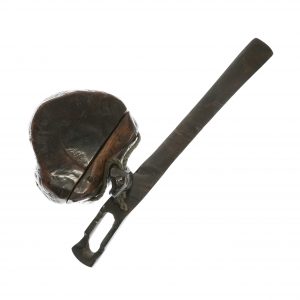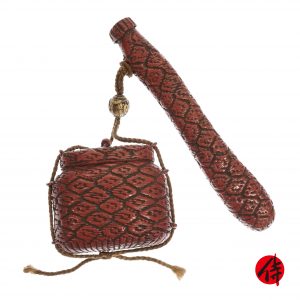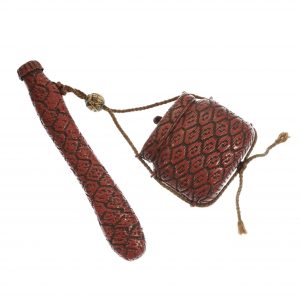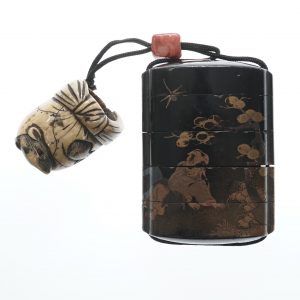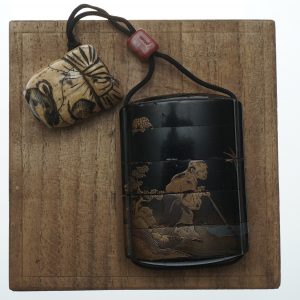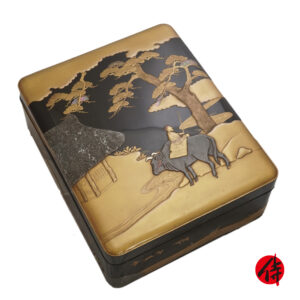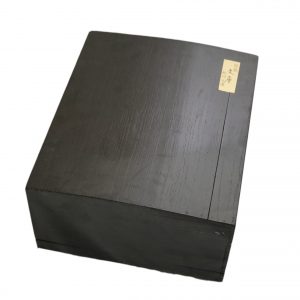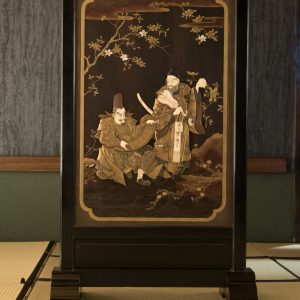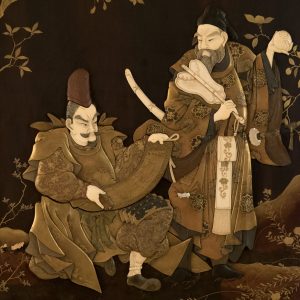Description
This item is a Tabaco Ire (たばこ入れ). The Fukuro (袋, pouch) and Kiseru-Dutsu (きせる筒, container of smoking pipe) are tied with metal chains and could be hung from the waist through a cord or belt. Tabaco Ire is a container to store chopped tobacco. In the early Edo period, it was considered elegant to wrap chopped tobacco in white paper. But people who were engaged in outdoor works tied it to a handmade purse and hung it on their waist. In addition, some people remodeled and used the Douran (胴乱, a case to store valuables or gunpowder). This way, Tabaco Ire gradually spread among ordinary people and reached the upper class. Various types of Tabaco Ires were made; Sage-Tabaco Ire (提げたばこ入れ, hang from the waist) and Kaichu-Tabaco Ire (懐中たばこ入れ, put inside of Kimono) are the typical styles. It is said the latter type was appreciated, especially Samurais and ladies.
If you focus on the metal fitting of the Fukuro part, you will find the figures of two lions playing with each other. And flowers are blooming around them. This theme is the combination of peonies and the Kara-Jishi (唐獅子). It is a classical subject and favored designing for various items since a long time ago. The Shishi (獅子) means a lion in Japanese, and the Kara-Jishi is a lion brought from the continent to Japan in the Toh period (唐, Tang dynasty, 618-907). The Kara-Jishi typically has curly hair for its head, neck, body, and tail. In Buddhism, the Kara-Jishi is regarded as a symbol of wisdom, and the Monju Bosatu (文殊菩薩, Manjushri Bodhisattva) rides lions. According to a theory, the Kara-Jishi originates from the Komainu (狛犬, stone guardian dogs that exorcize evil spirits).
Peony represents happiness, wealth, nobleness, and gorgeousness. This flower pattern has been treated as a good-omen motif; people regarded it as a rich harvest sign. Peony is called the Botan in Japanese. When we write this flower’s name in Japanese, its second letter means mountain hermit medicine to give us eternal youth. Based on the meaning of this letter, the peony pattern symbolizes eternal youth and longevity.
There is a Houwa (法話, Buddhist monks tell the story of Buddhism in an easy-to-understand manner) that treats the Kara-Jishi and this flower. The lion is called the king of the beasts. However, even this invincible animal has only one fear; a bug in the lion’s body. This pest grows in the lion’s hair and eventually breaks the skin and bites the flesh. Nevertheless, it dies if it is exposed to be the night dew of a peony. Therefore, the lion rests under peony flowers at night, looking for a haven. This Tabaco Ire’s design might have been quoted from this story.
*As this item is an antique, please check each photo and ensure its condition.

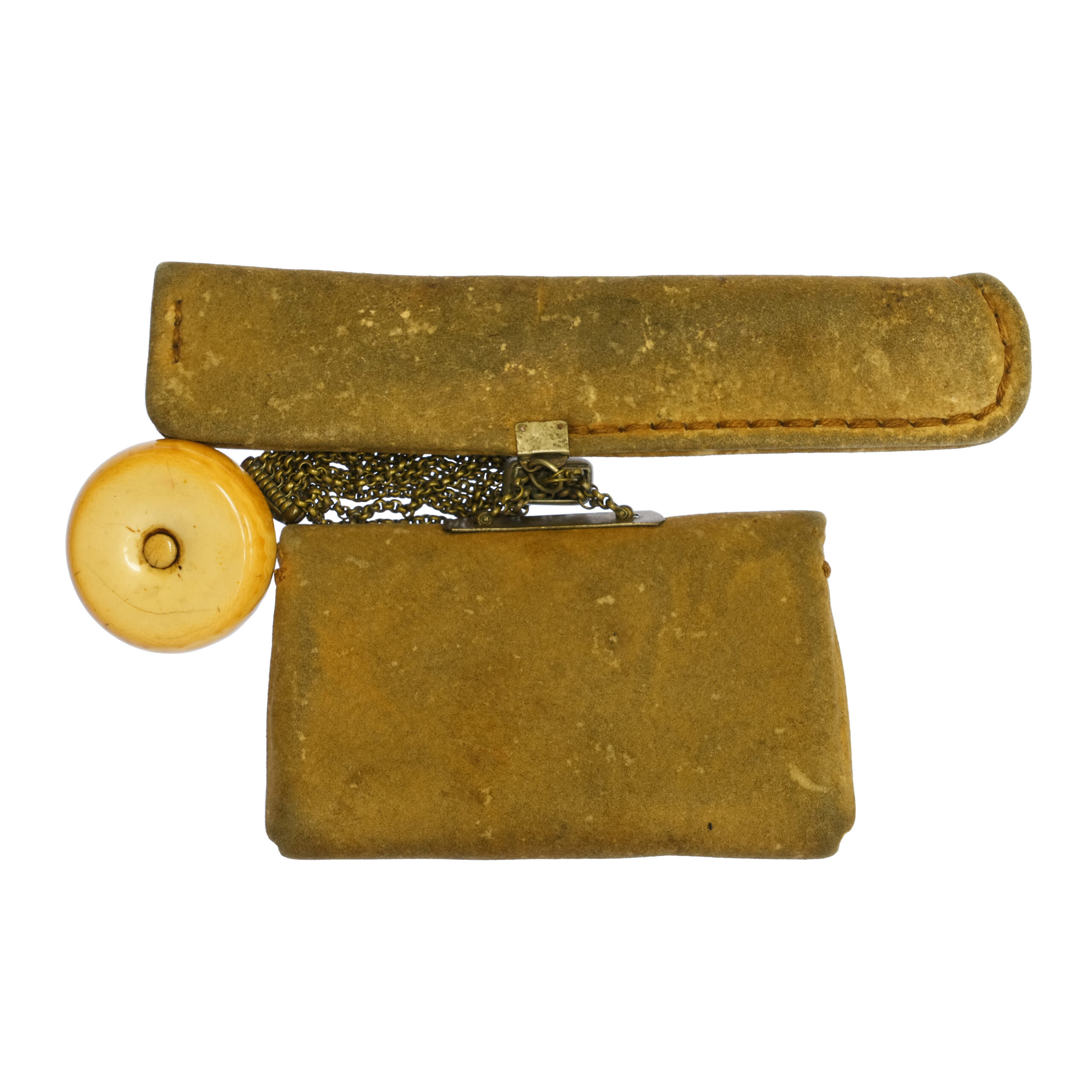
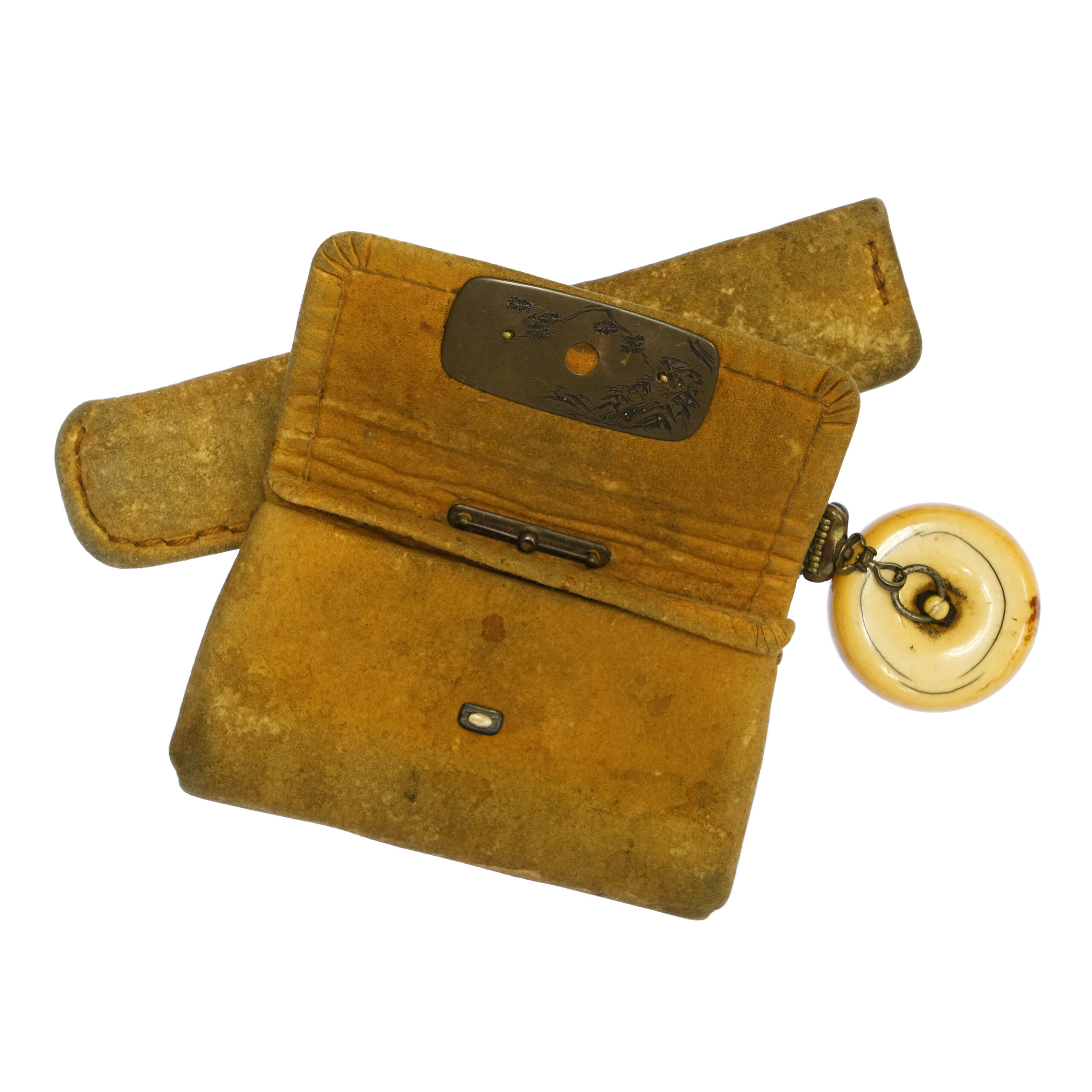
【About us】
Samurai Museum is located in Tokyo, Japan, exhibiting antique artifacts related to the Samurai history. Samurai Museum Shop is the place for those who are interested in Japanese culture and craftsmanship. We deal with antique Samurai swords/armor, traditional crafts made in Japan and so on.
【Payment method】
We accept payment through Stripe (Credit card), PayPal, Apple Pay or ChromePay, all of which are secure payment methods. Also, you don’t need to make an account on Stripe for the checkout. If you prefer other payment method, please contact us. You may either pay in JPY, USD, AUD, CAD, EUR, CHF or GBP. The price is set in Japanese Yen. Prices in other currencies are automatically calculated based on the latest exchange rate.

【Shipping duration】
We normally ship via EMS (Express Mail Service) provided by Japan Post. It usually takes at least 5-14 days to deliver the package after you place an order.
We offer Free International Shipping as long as we can ship your order by EMS. If you prefer other shipping carriers, please contact us.
We will inform you of the order’s tracking number via email. Please make sure you fill out your valid email address correctly.
*If you like to make sure if EMS shipping is available to your country, please contact us.

【How to make sure the condition】
Please keep in mind that what you are going to purchase is an antique item. We uploaded high resolution photos for you to check its condition thoroughly. If you like to see more photos with different angles, please feel free to contact us. We will be happy to send them to you so that you can make informed decision.
It is essential for us to know that you are happy with your choice of antique item and we are prepared to use the best of our ability to serve you.
Would you like see some more antique items for sale? Please check the link below. We hope you can find your favorite Tsuba.
https://www.samuraimuseum.jp/shop/product-category/antique/
